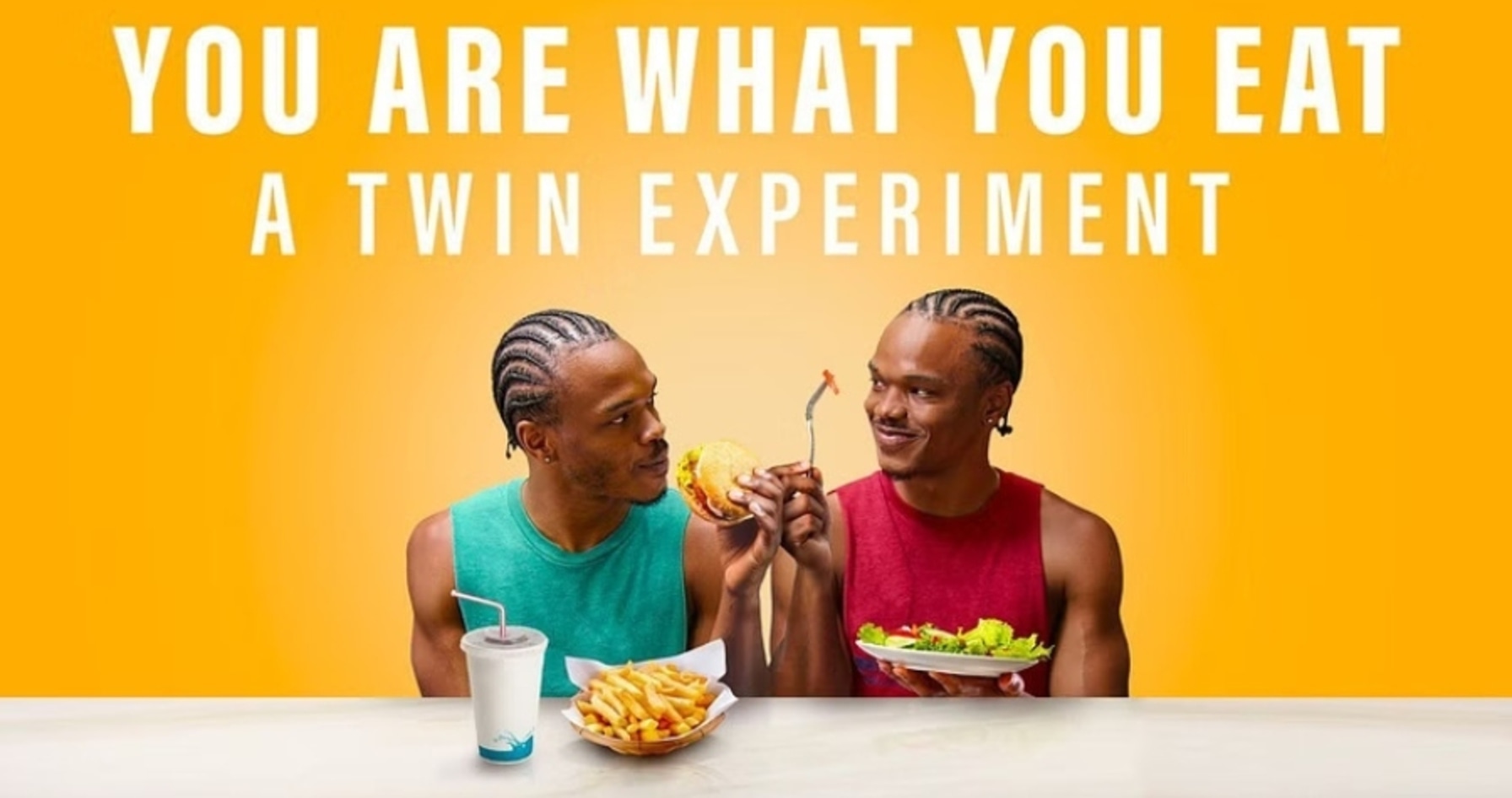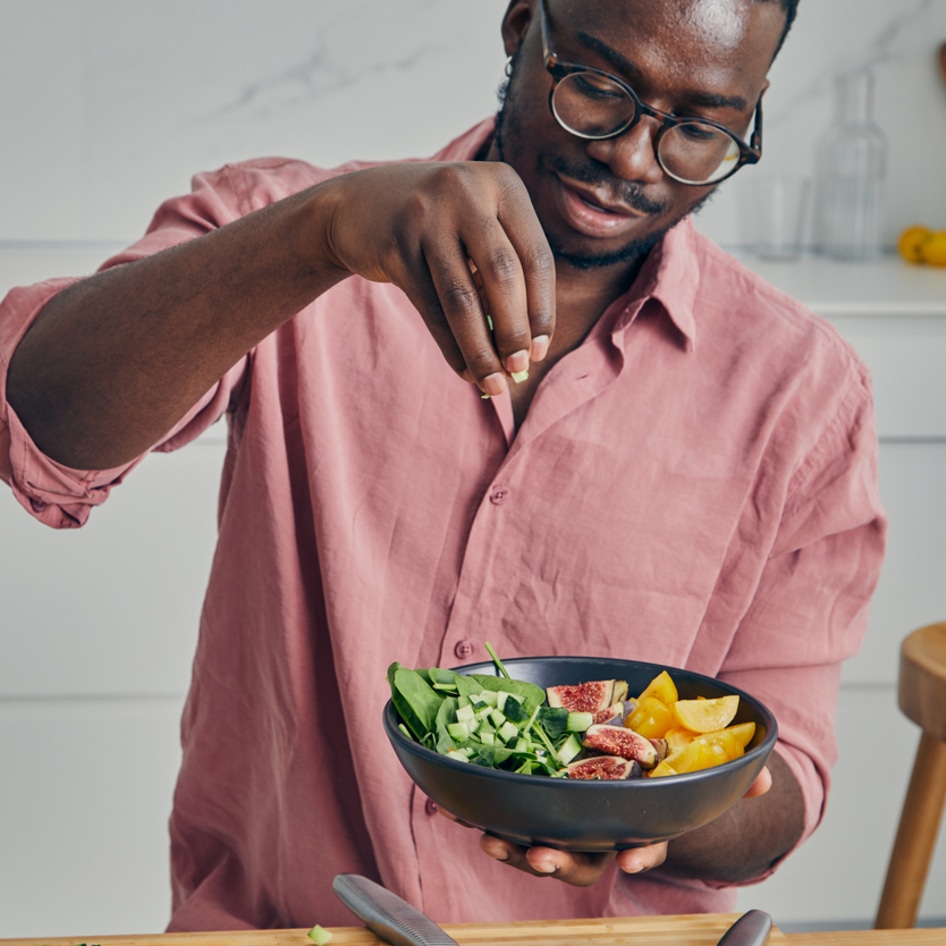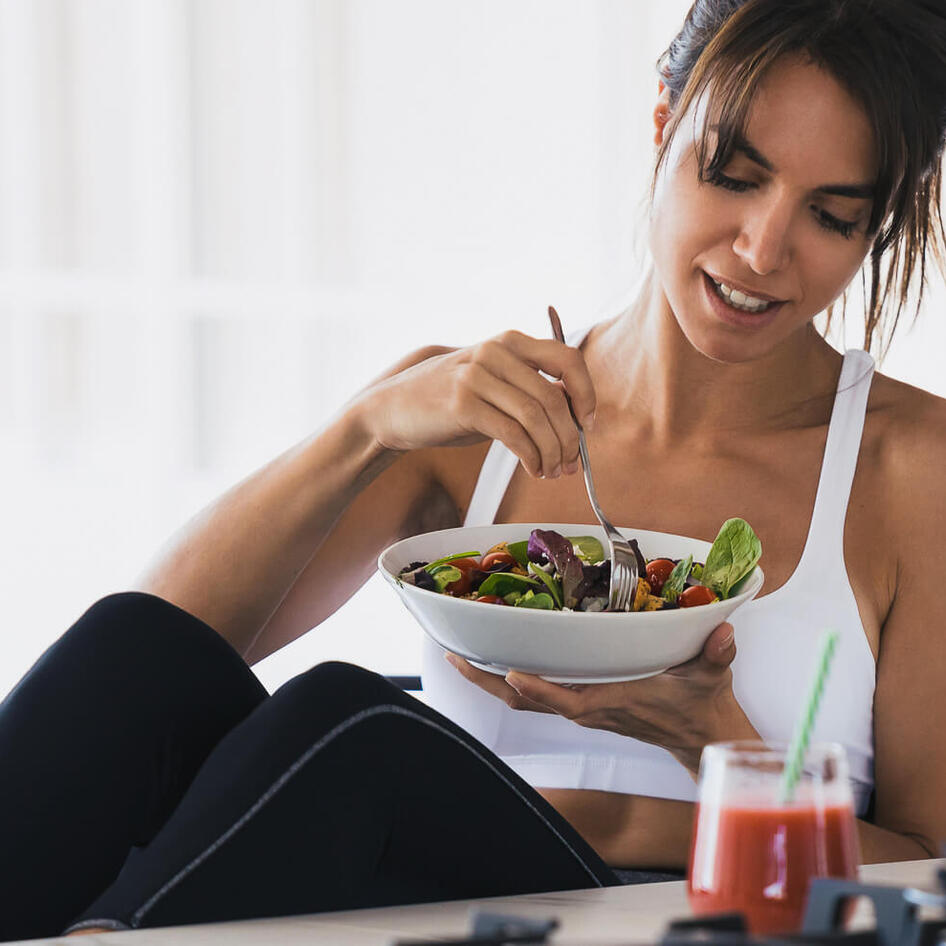Last year, Stanford Medicine released the findings of a ground-breaking new study that involved 22 sets of twins. From May to July 2022, one person from each pair of siblings followed a vegan diet, while the other stuck to an omnivorous diet. The results, which surprised even the researchers themselves, may be the closest to definitive proof we have so far that a whole food, plant-based diet really is the best for our health. But if you need to see it to believe it, you absolutely can.
You Are What You Eat: A Twin Experiment debuted on Netflix on January 1, 2024, and it’s already gripped viewers all over the world. It even features expert insight from major vegan entrepreneurs, chefs, politicians, and nutritionists including Miyoko Schinner, Tracye McQuirter, Daniel Humm, and Cory Booker.
Here, we’ve compiled eight of our biggest takeaways from the hit documentary.
1 The food system started to change after World War II
As well as focusing on the Stanford study, the new documentary also gives some important background about the American food system and the roots of the Standard American Diet, which generally includes a lot of processed food, sugar, fat, refined carbohydrates, and red meat.
According to the experts in You Are What You Eat: A Twin Experiment, this approach to food started to take shape after the Second World War. Americans were thin and undernourished, and, as a result, many men weren’t qualifying for the military.
“Processed foods were introduced to the Philippine islands around World War II. So that’s why, growing up, we ate foods that were not part of a Filipino person’s diet.”
The food industry’s focus became about calories, and pushing out as much food as possible for lower prices. Factory farms became more efficient and more industrialized, and cheap processed animal products became a staple for families across the country.
But it wasn’t just in the US that things changed after World War II. Carolyn and Rosalyn, who took part in the Stanford experiment and featured in the documentary, explained that major changes happened in their home country of the Phillippines, too.
“People think that a lot of Filipino food is a lot of pork,” Rosalyn says. “Pork, which seems ubiquitous in the Filipino diet now, at one time was prepared maybe once or twice a year. And that was a treat.”
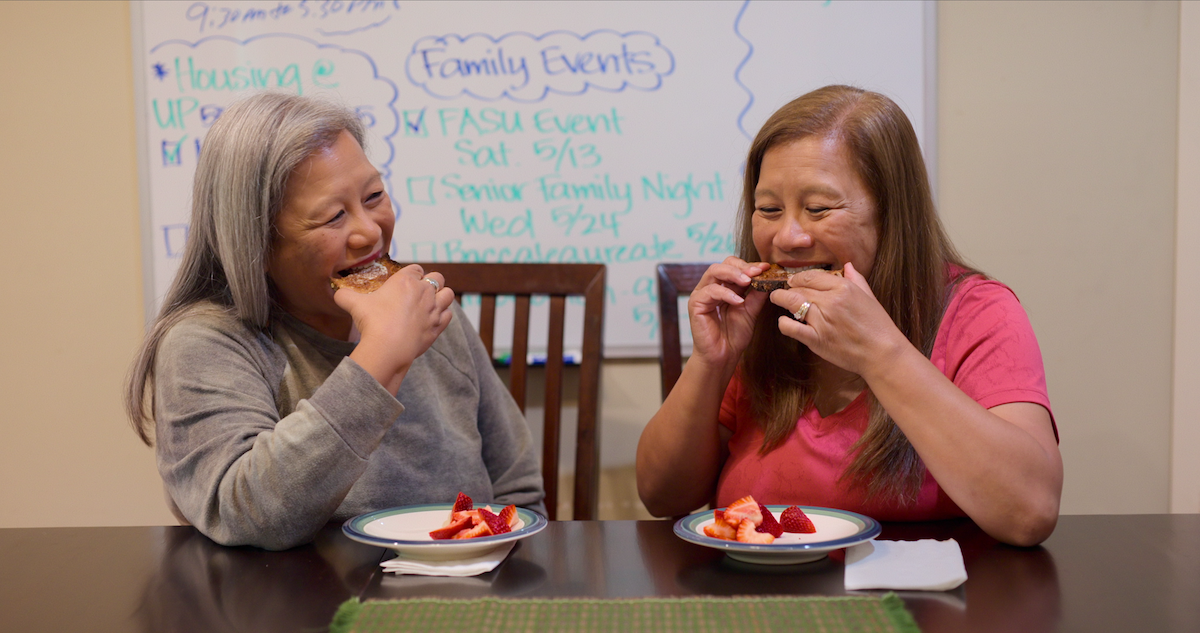 Netflix
Netflix
2 Today, millions of Americans still struggle to access fresh fruit and veg
Dietary guidelines in the US are always clear that fruit and vegetable consumption is important. But it’s not always easy for Americans to access fresh healthy foods. The documentary draws a comparison between Loma Linda and San Bernardino in California, for example.
In Loma Linda, which is a hotspot for longevity and one of the world’s Blue Zones, it’s easy for people to access healthy plant-based whole foods. But in San Bernardino, the birthplace of McDonald’s, many people struggle to access the same type of food. The county is home to multiple “food deserts,” which is a term commonly used to describe areas where processed and fast food options are available in abundance, but fresh fruit and vegetables are harder to find.
Research suggests that one in five Black households in the US is located in a “food desert,” and this fact has led many to label this type of separation across America as “food apartheid.”
“‘Food apartheid’ looks at the whole food system, along with race, geography, faith, and economics,” Karen Washington, the food justice advocate who coined the term “food apartheid,” told The Guardian in 2018.
“You say ‘food apartheid’ and you get to the root cause of some of the problems around the food system.”
3 Our food system is destroying the planet as well as our health
Most people are aware by now that the way we eat has a big impact on the environment, and You Are What You Eat: A Twin Experiment underscores this point, too. Because you can’t talk about industrialized meat production without mentioning the impact it has on the earth.
“The livestock sector produces more greenhouse gasses than the entire global transportation sector,” says George Monbiot, British journalist and prominent environmental activist, in the documentary. “We’re facing the greatest predicament humankind has ever encountered: the potential collapse of our life support systems.”
Research suggests that animal agriculture is not just pumping out greenhouse gasses, but it’s also driving deforestation and habitat destruction, and pillaging valuable resources, too.
“It’s very clear, this is the obligation of all the people on the planet,” adds Brazilian earth system scientist Carlos Nobre. “We have to reduce the consumption of meat.”
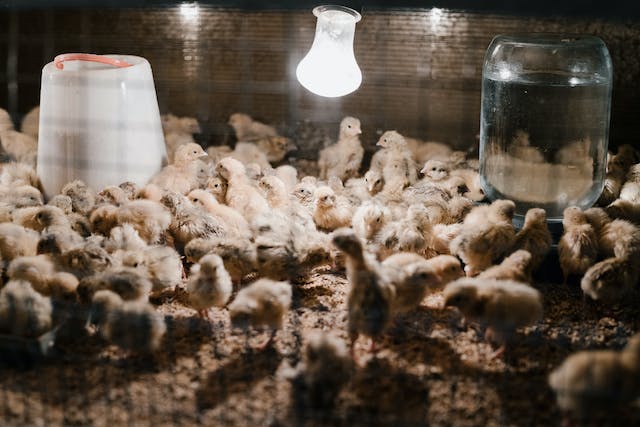 Pexels
Pexels
4 Food production systems aren’t ethical or safe
The documentary series also touches on the ethical and safety implications of the food industry in the third episode, calling out the misleading nature of labels like “free range” and “humane.” If a chicken product has been labeled cage-free, for example, it doesn’t mean the bird has been raised outside the confines of an industrialized factory farm, it just means that they were not inside a cage.
You Are What You Eat: A Twin Experiment even gets the perspective of farmer and whistleblower Craig Watts who used to raise chickens for meat giant Perdue, before speaking out against the system and switching to plant-based methods.
“We are continuing to barrel towards a future where a cut on your hand or an infection from a routine dental procedure could prove to be deadly.” - Valerie Baron, senior attorney for the Natural Resources Defense Council
“You can’t logistically hatch out 2 million chicks a week and all of them be healthy,” he says in the documentary. “But I do know that they have genetically bred these birds for desirable traits, mostly to have a big breast.”
“The organs won’t keep up with the muscle growth, the skeletal system won’t keep up with the muscle growth, so you see a lot of heart attacks, you see other issues, you see a lot of birds that can’t stand, they can’t support their own weight,” he added. “I just think the bird is bred to suffer.”
This way of cramming animals together also leads to widespread sickness, and henceforth, the widespread use of antibiotics. However, this overuse is already contributing to antibiotic resistance.
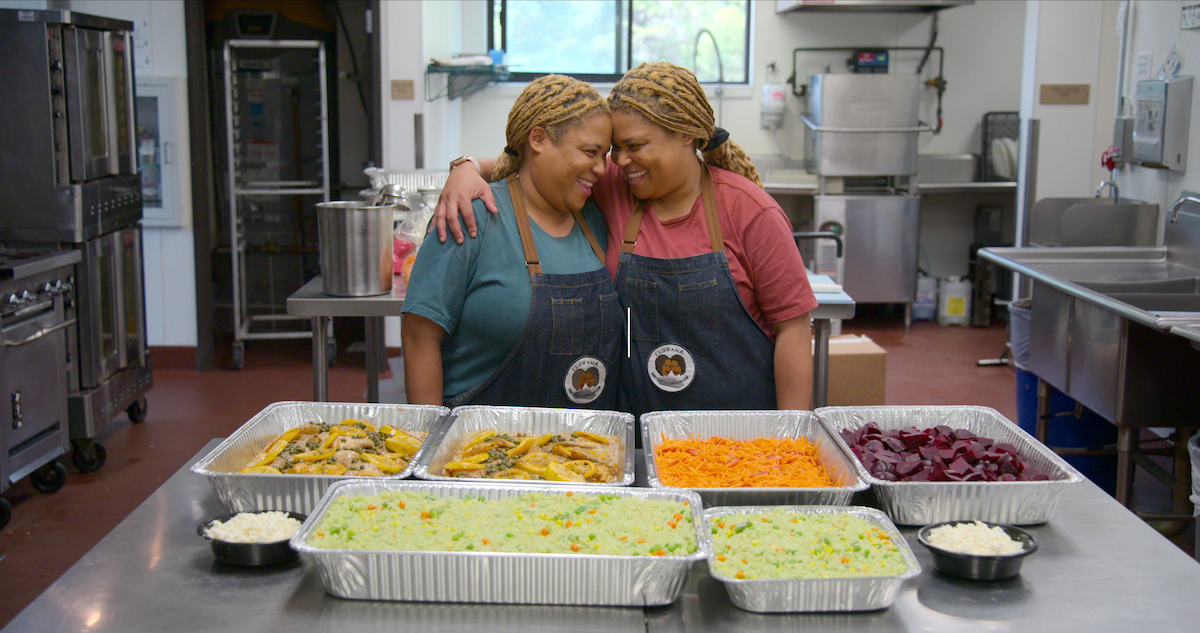 Netflix
Netflix
5 Plant-based diets can make a significant difference to heart health
“As an immigrant, there are so many health issues in the Filipino-American community,” continues Rosalyn in the first episode of the documentary series. “We have heart disease, diabetes.”
And the Filipino community isn’t alone. Heart disease is the leading cause of death globally, but research suggests that it impacts minority groups more than others. According to the Cleveland Clinic, while 36 percent of white adults have been diagnosed with cardiovascular disease, it impacts 47 percent of Black adults.
For most adults, however, eating more whole foods can make a difference. In the Stanford study, in the first four weeks alone, those on a plant-based diet already had lower levels of LDL cholesterol, which is a major factor associated with heart disease risk.
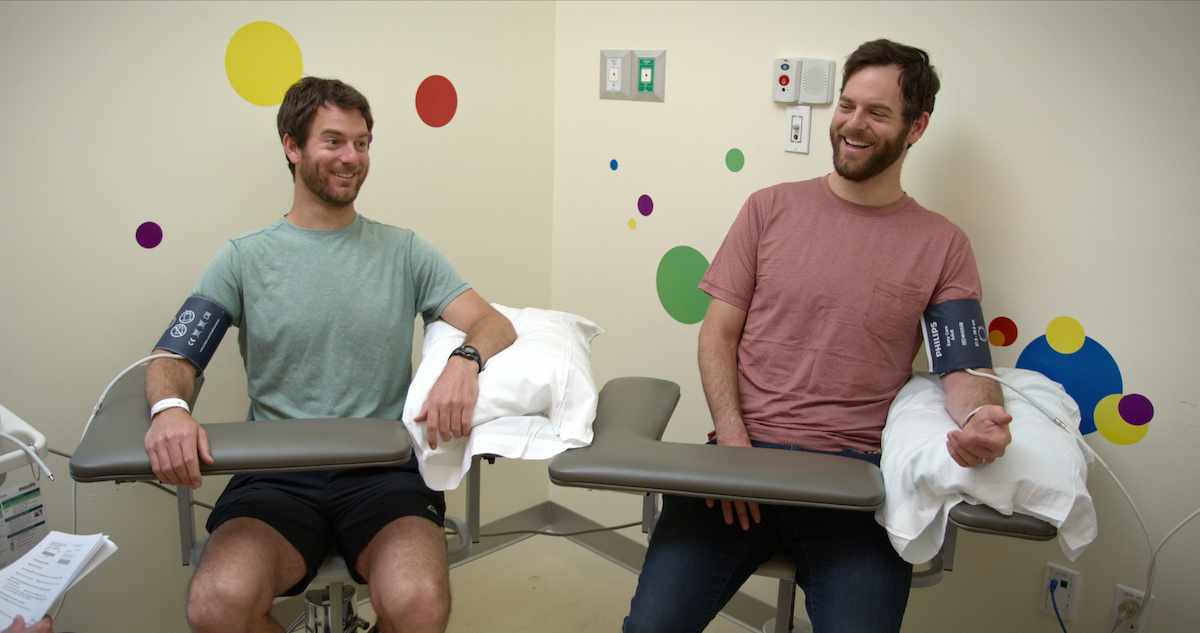 Netflix
Netflix
6 And your gut health, too
The experiment also showed that plant-based diets can promote gut health, which is important for overall well-being.
“Our gut microbes produce all of the chemicals that keep us alive and help us live longer,” explains British epidemiologist Tim Spector. “There are certain microbes that are associated with unhealthy foods, and there are others that are associated with healthy foods, and the ratio of these foods is really important. If we eat healthy foods, we get more and more species, more diversity, you will actually acquire a healthier gut microbiome.”
At the end of the experiment, researchers noted that one of the most important types of gut bacteria, called Bifidobacterium, increased in the vegan group.
“Going into this, I imagined that fiber and plants and vegetables, it’s gonna take longer to be processed through my body, and give more opportunities for the microbes to pull out nutrients, whereas hyper-processed foods, those are gonna just slip right through.” - Charlie, one of the twins in the experiment
7 Plant-based foods can even turn back the clock, sort of
Another factor that Stanford researchers looked at was biological age, which is different from your actual chronological age. Biological age takes into account things like cell and tissue damage, for example.
Varun Dwaraka, a bioinformatics researcher who specializes in epigenetics, said that studies looking at biological age usually take longer than the Stanford research. “We try to say about three months to six months,” he says. “With an eight-week study, we didn’t expect there to be much of a change. And so that’s where it got really interesting.”
It turns out, at the end of the study, the twins on the vegan diet were biologically younger than the twins on the omnivorous diet, suggesting that plant-based foods may be able to reverse cellular aging.
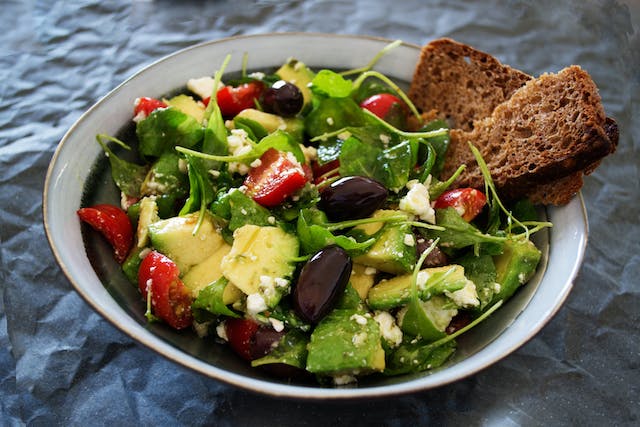 Pexels
Pexels
8 We have more control than we realize to change our health
Many factors are fixed when it comes to health. We can’t change our genetics, for example, and often our environment is very difficult to control. But for many people, simply eating more plant-based whole foods could make a difference to overall health and well-being and decrease the risk of chronic disease.
“Life is like a stack of cards—while there is no magic bullet that will guarantee 100-percent immunity, making healthy food choices that are plant-forward can be powerful and stack the deck in our favor,” Australian dietitian and doctor of food and nutrition Shy Vishnumohan, PhD, told VegNews last year when discussing cancer risk.
And the new documentary certainly backs up her point of view. It suggests that LDL cholesterol, gut health, and even our biological age could be in our control to a certain extent. But of course, there are limitations. As You Are What You Eat: A Twin Experiment highlights, access to healthy foods needs to significantly improve for all communities across the US.
This ground-breaking documentary series touches on so many issues outside of this list, including the importance of muscle mass and even the impact that diet can have on our sex lives. To find out more revelations, stream it on Netflix here.
For the latest vegan news, read:
JUMP TO ... Latest News | Recipes | Guides | Health | Shop

